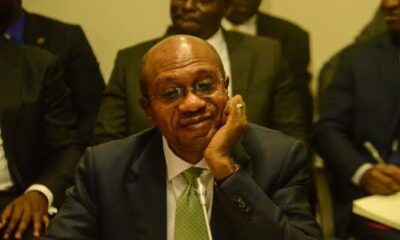World
Taliban Bars BBC TV Programmes In Afghanistan
BBC TV programming has been taken off air in Afghanistan, after the Taliban ordered local channels not to broadcast content from international partners.
Calling it a “worrying development”, the BBC said it would affect more than six million viewers of Persian, Pashto and Uzbek language service programmes.
The BBC Persian TV channel can still be accessed – but only by the 20% of Afghans who have satellite TV.
Radio and online services are unaffected.
Other international broadcasters whose programming was taken off air by the ruling include Voice of America, German company Deutsche Welle and China Global Television Network.
BBC World Service head of languages Tarik Kafala said it was crucial Afghans were not denied access to impartial journalism at a time of “uncertainty and turbulence”.
“We call on the Taliban to reverse their decision and allow our TV partners to return the BBC’s news programmes to their airwaves immediately,” he added.
Before the ruling, the BBC had broadcast every day for half an hour in Pashto, via Afghan partner stations.
Similar arrangements allowed for 15 minutes of programming in Uzbek, five days a week, and for 60 minutes a day in Persian, also five days a week, backed by two weekly current affairs programmes.
Journalists beaten
Reporting from the Afghan capital, Kabul, BBC correspondent Secunder Kermani said the Taliban had insisted the media could report critically, “as long as they bear ‘Islamic values’ and ‘national unity’ in mind”.
However, reporters have at times been detained or beaten as a result of their coverage and many Afghan journalists fled the country after the group took power last year.
Our correspondent said the latest move appeared to be part of an intensifying authoritarian trend. It came days after the Taliban reversed a decision to allow girls’ secondary schools to re-open.
On Sunday, the group decreed that men and women would be allocated separate days of the week to visit parks around Kabul.
The Taliban regained control of the country last August, 20 years after being ousted, as the remaining Western troops and diplomats left.


 Sports17 hours ago
Sports17 hours agoOleksandr Usyk defeats Tyson Fury to tetain heavyweight title

 Politics17 hours ago
Politics17 hours agoWe Will Bury PDP, Ibori’s Daughter Blows Hot

 News17 hours ago
News17 hours agoNigerian Emergency Agency NEMA Puts All Offices On Alert Over Fatal Stampedes

 Sports17 hours ago
Sports17 hours agoCAF Made Me Believe I Won – Achraf Hakimi

 Top Stories17 hours ago
Top Stories17 hours agoEmefiele: EFCC secures final forfeiture of 1.925 hectares of landed property linked to former CBN Governor
- News5 hours ago
NIGERIAN BREWERIES PARTNERS OZA CARNIVAL








